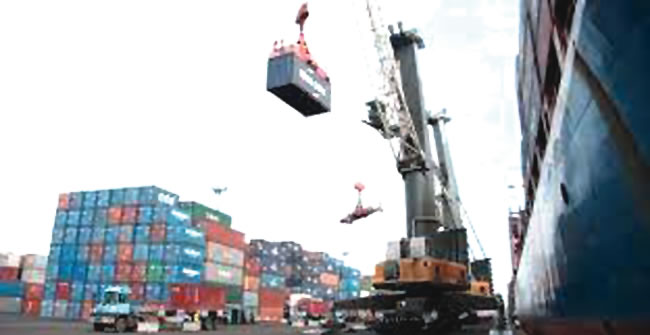Investigation by the Nigerian Tribune has revealed that the dry ports in Kaduna, Kano and the just commissioned Dala dry port have all been struggling to operate at optimal level due to paucity of cargoes from the ports in Lagos. This is even as findings also revealed that due to the absence of a Standard Operating Procedure (SOP) by the Nigeria Customs Service (NCS) for these dry ports, then still operate as bonded terminals.
Speaking with the Nigerian Tribune exclusively, a top management staff of one of the dry ports who wouldn’t want his name in print explained that a major reason why cargoes are not flooding the dry ports is because of demand for payment of Container Deposits Fee at the port terminals in Lagos by the shipping companies.
According to the dry port top executive, “The dry ports in the North are already designated as Port of Origin and Destination; and so, cargoes meant for these dry ports have no right to be examined at the ports in Lagos.
“But what do we have, many cargoes destined for the dry ports in the North are being subjected to payment of charges at the Apapa Ports by the shipping companies. When the cargo arrives, and the shipper wants to move it straight to Kaduna or Kano Dry Ports, the shipping companies will demand for the payment of Container Deposit Fee.
“The shipping companies and the terminal operators at the Lagos Ports deliberately frustrates the evacuation of cargoes to the North. They demand for all sort of charges on cargoes meant for dry ports in the North, thereby ensuring the cargoes spend more time in the Ports in Lagos and thus accumulating demurrages and charges. Any cargo destined for any dry port in the North does not have to pay any charges at Lagos ports because such cargo has not reached its port of destination.
Due to these charges slammed on cargoes meant for dry ports in the North at the ports in Lagos, the importers will now decide to clear the cargoes at the ports in Lagos to avoid double charges. This is why the dry ports are still operating below optimal level.
“Another issue with the operations of the dry ports in the North is that they are still operating as Bonded Terminals due to absence of a Standard Operating Practice (SOP) by the Customs. As we speak, Customs has no model of operations for Dry Ports in its system, and this is why the Dry Ports still operate like Bonded terminals despite being commissioned as Dry Ports.
“The absence of an SOP by Customs for the Dry Ports is a major reason why the shipping companies slam Container Deposits charges and other fees on cargoes destined for the Dry Ports at Apapa ports.
“The final issue affecting the dry ports in the North is the lack of enough Locomotives and Wagons by the Nigerian Railway Corporation (NRC) to move cargoes straight to the North, thereby giving the shipping companies enough 32leverage to slam charges on cargoes meant for dry ports at the Lagos Ports.
“When the cargoes arrive the Lagos Ports, if the rail is working, the cargoes are supposed to be put on the rail and moved straight to the Dry Ports in the North. But because the rail to Kano, Kaduna is not working, that is why after paying Ocean and Inland freight up to the dry ports in the North, the Northern importers are forced to clear their cargoes in the ports in Lagos because of unnecessary charges being slammed on their cargoes while inside the Apapa port.”
READ ALSO FROM NIGERIAN TRIBUNE






